Women sustaining families in Pagirinya settlement
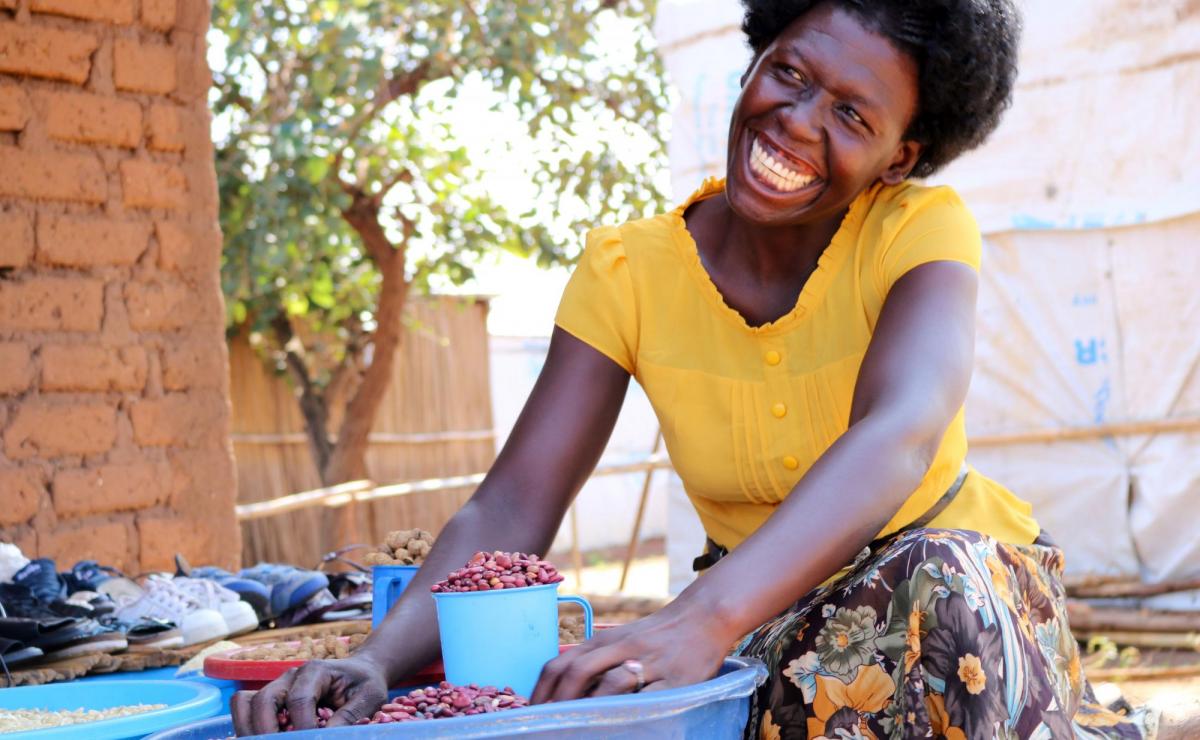
ADJUMANI - Topista Angua’s day begins at 5:00am, in her five-acre garden in Pagirinya settlement in Adjumani district. She is growing two acres of maize, two of groundnuts and one of sesame (simsim). Part of her produce is for consumption while the other is for sale to meet such expenses as education, medical and clothing.
“I have to work extra hard to ensure my children have a decent future,” says the mother-of-three, who has other five young dependants.
From the garden, Angua rushes to a produce, shoe and clothes store owned by Tamarusi Group where she spends the rest of the day attending to customers. While there, she manages to prepare breakfast and lunch for all the children. In fact, she does most of the house chores herself. This is a daily routine for Angua, who is considered ‘rich’ in Pagirinya, as only a few people have both vast land and a business.
She is one of the many women striving to single-handedly sustain their families in Pagirinya. “Most of the women here are refugees whose husbands stayed in South Sudan or passed away during the ongoing civil conflict.”
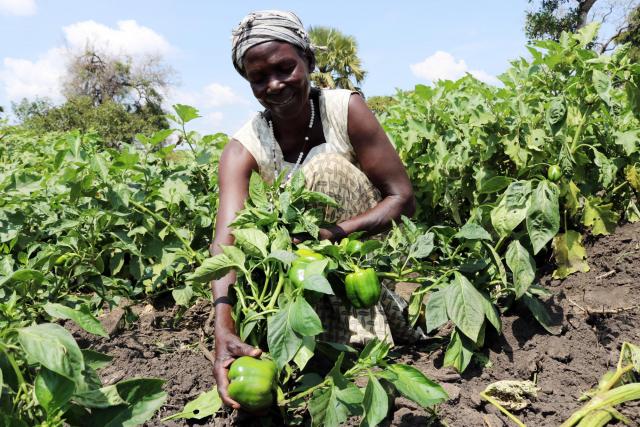
Women boosted with grants for business
To improve their livelihoods and self-sustenance, women groups in Pagirinya have been offered cash grants to venture in business by the Lutheran World Federation (LWF) with funds from the Bureau of Population, Refugees and Migration (PRM).
Tamarusi Group, to which Angua is a member, is one of the 16 beneficiary groups. She says that with a food produce plan her group shared with LWF, the organisation constructed a store, where the group would keep and trade in food produce.
“We were given UGX 1.800.000 in September this year, which we partly invested in produce farming and the rest for stocking our produce store with beans, maize and groundnuts for sale,” Angua says.
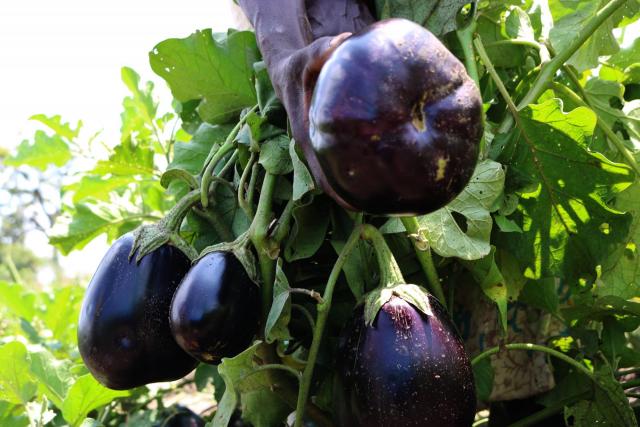
Her group of 11 women and 4 men has since diversified to trading in shoes and clothes. “In a period of 75 days, we have accumulated a profit of over UGX 10,000,000 from our produce business, UGX 650,000 from shoes and UGX 200,000 from clothes.”
Another group, Ebodibaku, which has 30 women, was given UGX 3,000,000 that they invested in agriculture. The group specialised in vegetable farming, as vegetables have ready market both in Pagirinya, other settlements in Adjumani and at the Uganda-South Sudan border in Nimule.
“With our harvest, we supplement the food ratio for sufficient food and a balanced diet. We also sell the surplus and keep the money in a Village Savings and Loan Association (VSLA), where any of us can acquire a loan and start up a business,” said Betty Scissor Keji, a mother-of-eight and the group’s chairperson.
Within three months, the group has accumulated UGX 1,200,000 in profit from their harvests and hope to continue earning from the business.
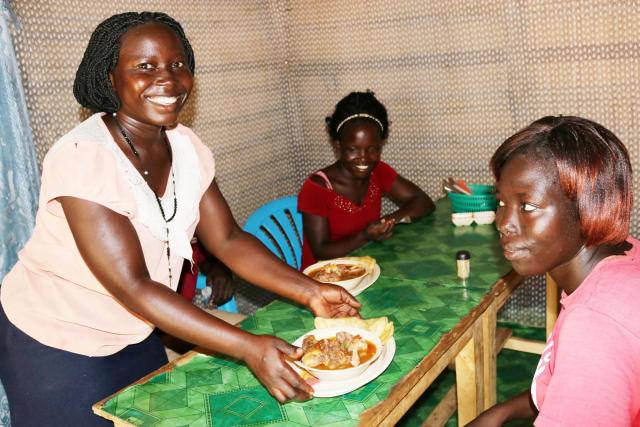
Small businesses from VSLAs
While they earn from their group businesses, the groups neither chose to share their profit nor spend it. They, however, save it in their respective group’s VSLA.
Keji explains that they believe each of them can establish a household business with loans acquired from the VSLAs, which would in turn improve their livelihoods as a group and as individuals. Currently, 11 of the 30 women in her group have established side businesses in Pagirinya market.
Alice Bira, from Tamarusi Group, got a UGX 200,000 loan that she used to establish a small restaurant in Pagirinya. “I earn an average of UGX 100,000 every month from Alice Restaurant, which I use to buy scholastic materials and pay school fees for my children. Besides, my children enjoy a balanced diet,” she proudly says.
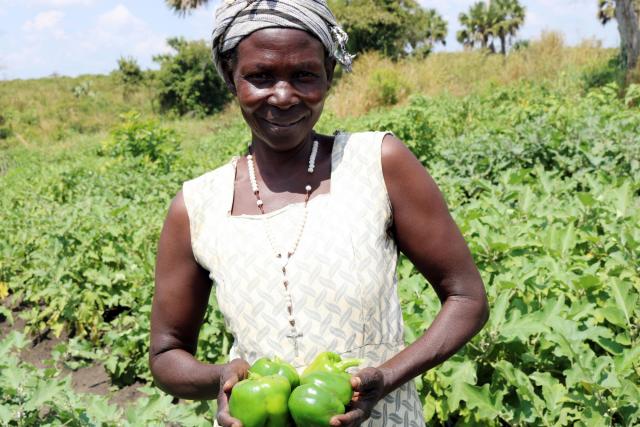
Ebodibaku Group’s Keji and Assumpta Foni set up food kiosks in Pagirinya market with loans from their group’s VSLA. “I do not have to wait for the harvest to get more food for my family to supplement the food ratio since I earn enough to buy more,” says Foni, a mother of five. “With the profit from my business, I can afford most of my children’s basic needs, such as food, clothes and medical care,” offers Keji.
LWF appreciates PRM's support towards its humanitarian activities aimed at protecting lives and improving people's livelihoods in Adjumani district's settlements.

